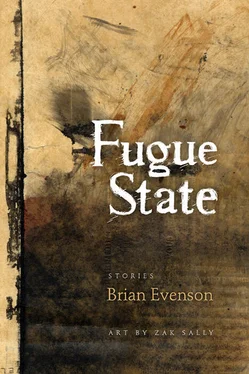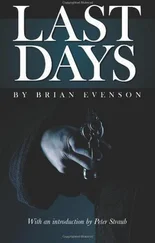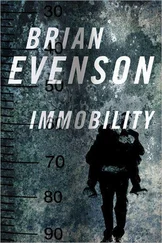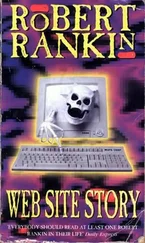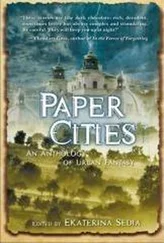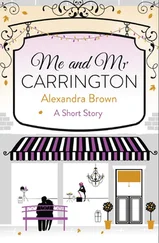“Then what are you doing?”
“Looking for someone,” he said. “A … Mr. Arnaud, I think. Is that you?”
“What, you just have a name?” said the voice behind the flashbeam.
Hapner nodded.
The man was silent for a moment. “All right,” he finally said, “you can go.”
Hapner nodded to himself. He reached out, began to put his possessions back into the bag. The thief’s crowbar cut through the flashbeam and struck the counter between his hands.
“Leave it,” said the man. “It’s mine now.”
“But—”
“This is my building,” the man said. “Whatever’s here belongs to me.”
“But there’s nothing I have that’s worth—”
“It’s a matter of principle,” the thief said, his voice rising. “Now get out.”
He kept staring at the answering machine. Arnaud, he thought, Bentham. Hapler. Or no, that wasn’t it exactly, he was already forgetting. He squinted into the light. Where was the flashlight exactly? How far away? He could make it out, mostly. He could see the man behind it, a dim form wavered at the edges.
He turned as if to leave and took half a step and then whirled and crouched, battered at where he thought the flashlight would be. The thief cried out, Hapner’s hand striking the casing of the flashlight hard. His fingers were instantly numb, the flashlight flicking away end over end and going out.
The crowbar passed moaning over his head, ruffling his hair, then smashed into the wall. The thief cursed. Hapner groped about, touched the man’s shirt but, unable to find the crowbar, dropped to his knees and crouched under the lip of the counter.
The crowbar crashed into the counter above him, rattling the walls.
“Where are you?” the man said.
Hapner said nothing.
“I’ll find you eventually,” said the thief. “You belong to me.”
Hapner stayed still, listening to the dim birds of the man’s feet, the scrape of the crowbar as it met floor or wall. He reached carefully up and touched the counter above him, his fingers feeling slowly along it.
There was a groove the crowbar had dug in the surface, the countertop splintered and cracked to either side of it. Hapner’s hands felt past it until they found his hammer.
“But maybe I already killed you?” the thief said.
The voice was right there, almost beside him. In one motion he swung the hammer up and forward. It struck something firm but not as hard as the wall.
The thief screamed and swooned toward him, striking the counter, stumbling over Hapner’s legs. Hapner struck him hard and repeatedly with the hammer. Something struck his shoulder and it suddenly became a numb, useless thing and he heard the crowbar splintering the wood behind him. He groped with his good hand for the dropped hammer. He heard the thief stutter-step and then, groaning, fall.
He moved toward the body, pounding along the floor in front of him until the hammer struck flesh. He fell on the other man and lost his hammer and felt the man’s face into existence and then fumbled up the hammer again and then, as the man still struggled his way out of shock, struck at his skull again and again until it sounded like he was hitting a wet sack.
He felt around the floor one-handed until he found the flashlight. He stood up and flicked its switch but no light came from it, so he dropped it again.
On his way back to the counter, he stepped on what must have been the thief’s hand and then, as he moved quickly off it, stepped into something damp and squishy, perhaps the thief’s gore, perhaps his own, and almost fell. One arm ached badly and swung loose, battering against his side like the trussed body of a shot bird. Moving it created little flashes of light behind his eyes.
He fumbled around on the counter until he found the answering machine, picked it up. There was something wrong with it, he could tell: its surface was no longer smooth.
The room seemed with each moment less and less familiar to him.
He managed to stumble out of the dark and back into the hall. His arm, he saw, in the light, seemed mostly dead, oddly lumped and turning black in two places. He tried again to move it but could not.
The answering machine was shattered in the back, and the slatted casing covering the speaker was destroyed, the speaker itself and the transformer beside it mangled. Why had he wanted to keep it anyway? He couldn’t remember.
He dropped the machine and, crouching beside it, worked the cassette free with one hand. One of its corners was crushed but the tape itself was still intact, could be listened to on another machine. Where had he seen one?
The hallway, he saw, was slowly going out around him, flattening out, the door he had come through now just an odd square of black, a vertical panel, two-dimensional, rather than an entrance. The whole world, he thought fleetingly, was like that for him, there was nothing he could hold on to but this hall and perhaps a few other halls above that and an answering machine he might or might not have seen, somewhere above him. But what did above mean? What’s wrong with it? he wondered of the hall. It all struck him as vaguely familiar, as if he had lived through it before, in another life.
He turned and looked where he was almost certain stairs had been, and found that it too had gone strange, a flat black rectangle scored with lighter lines. He stumbled toward it and, closing his eyes, pushed into it. The pain in his shoulder, too, he realized, seemed to be fading, was all but gone. He hit against something and pulled himself up, kept moving forward, kept stumbling, and when he opened his eyes saw that the stairs were stairs again, more or less, and that he could navigate them. He pushed through the yellow wall at their end and found himself in a hall, or what seemed like a movie set for a hall, everything slightly false. He reached up to touch his face and, when his hand came away, saw it was not a hand exactly, though a reasonable facsimile. There, floating above it, was a strange crimson cloud, the color of blood.
An anxiety began rising in him that he had a hard time placing.
By strength of will he managed to transform a brown rectangle into a door and push his way through. Inside, the cardboard cutout of a tiny man, hardly bigger than a child, was lying prone on what stood in for a couch, a crimson cloud hovering over his face. He took a deep breath and tried to relax and there, momentarily, saw a real, flesh-and-blood man on an actual couch, his face stained from blood that had seeped from his eyes. He felt, almost, that he recognized him. But then, suddenly, he was only a child in a crimson cloud again.
There was a blinking light near him, not far away, very quick, not blinking so much as strobing. He moved toward it slowly and stood near it and in a little while began to imagine that it was an actual manmade object, an answering machine. He found a button and pressed it.
A voice came out, speaking too rapidly. It sounded familiar to him, perhaps a voice he had heard before, but where?
Your name is Roeg, the voice said. You are a small man. This is your home. I’m very sorry for all that’s happened to you. My name is —
And then it stopped. Roeg, he thought. Is that my name?
What is my name? he wondered.
My name? he wondered. Why do I want to know?
There was, he managed to trouble himself to remember, something in his hand, something important, but why or what, he couldn’t remember. He tried to raise his hand but it wouldn’t move. What was wrong with it? The other hand he tried to move and it came, and there, clutched in it, he saw a small black rectangle that just for a moment he found himself mistaking for an open doorway. But no, it was not that, it was smaller than his hand and pierced through with two toothed circles: a cassette.
Читать дальше
